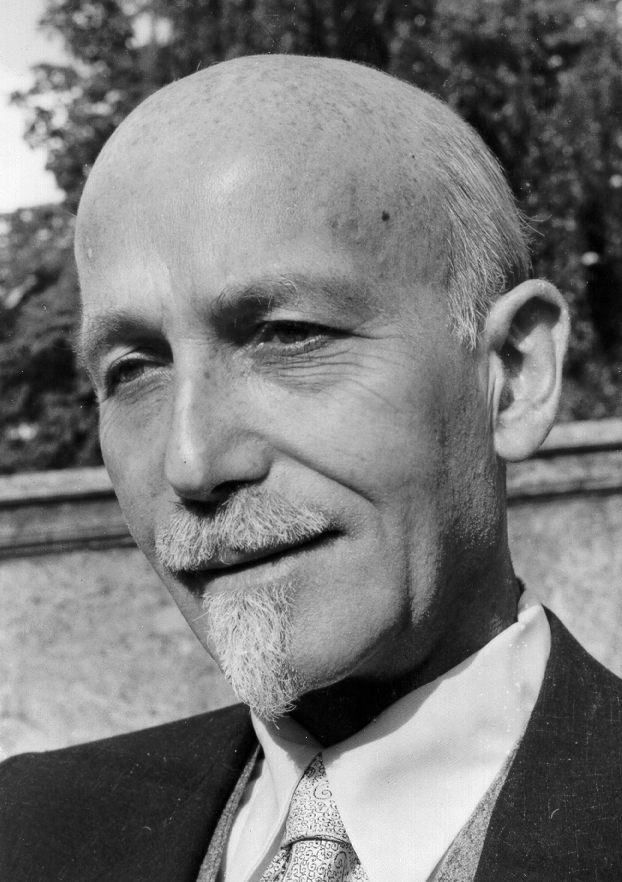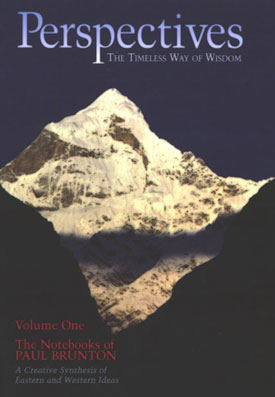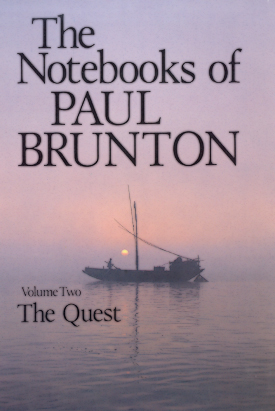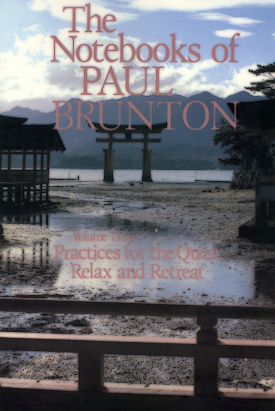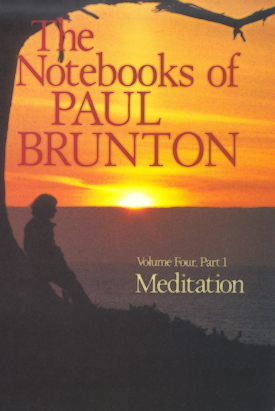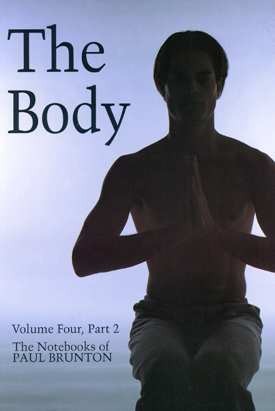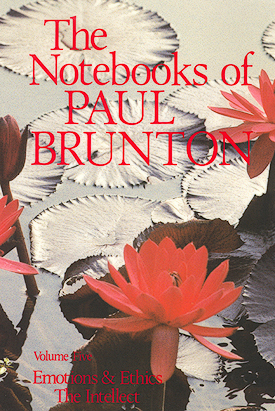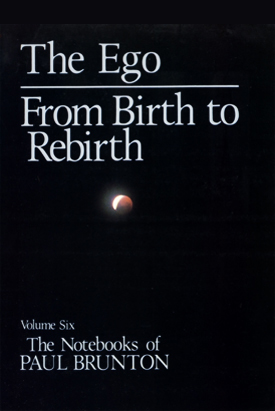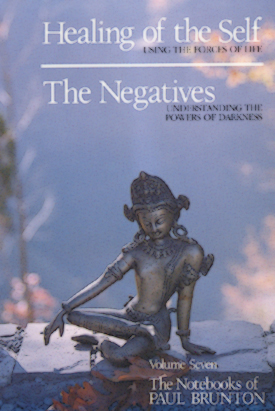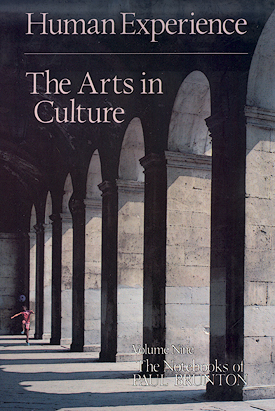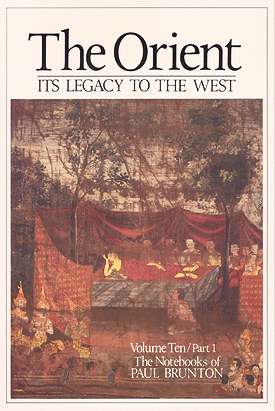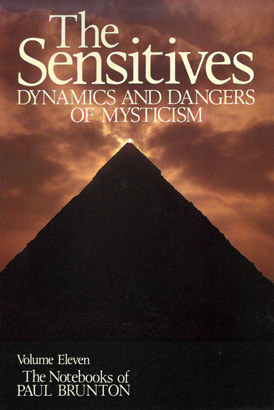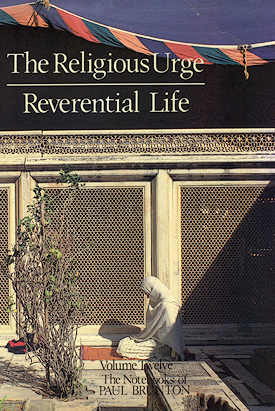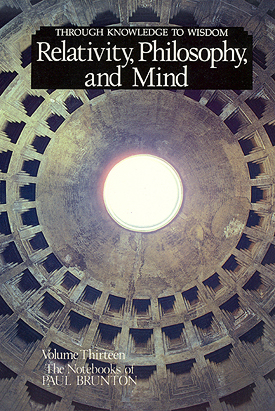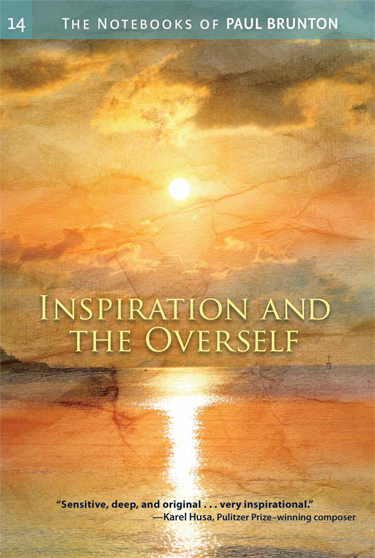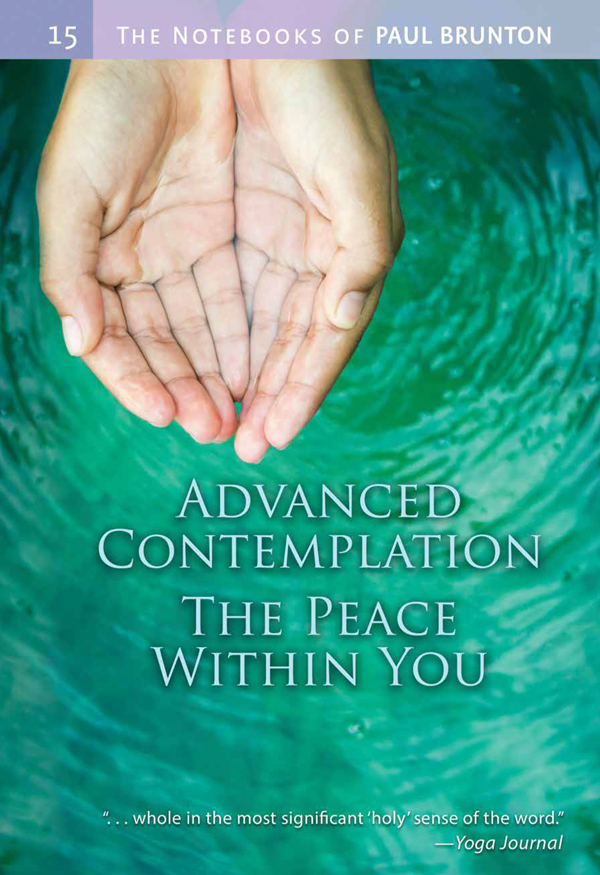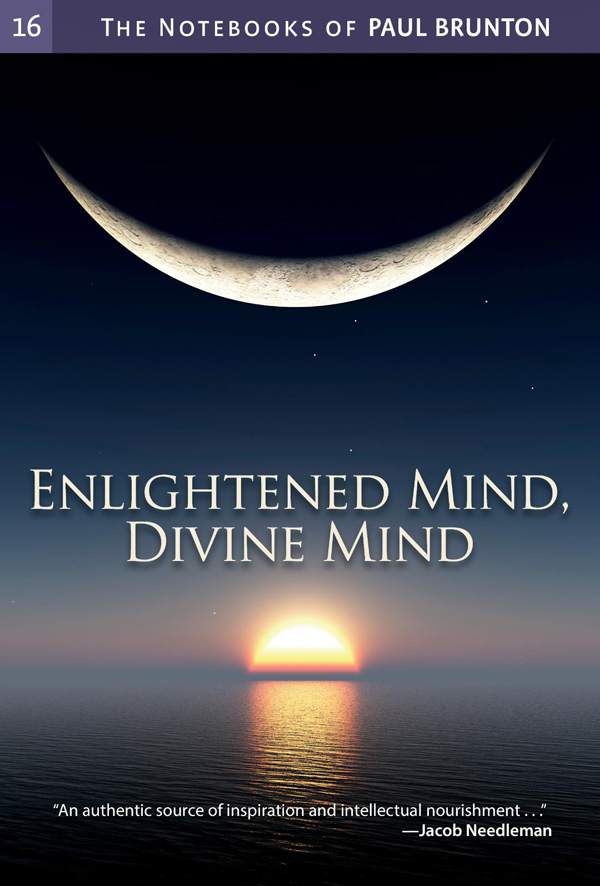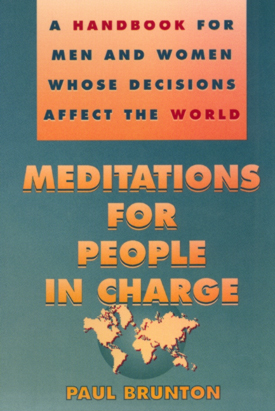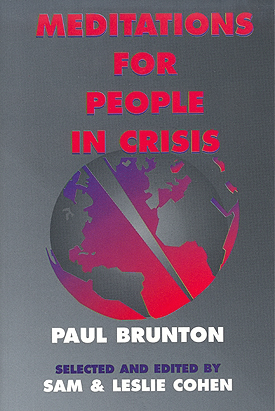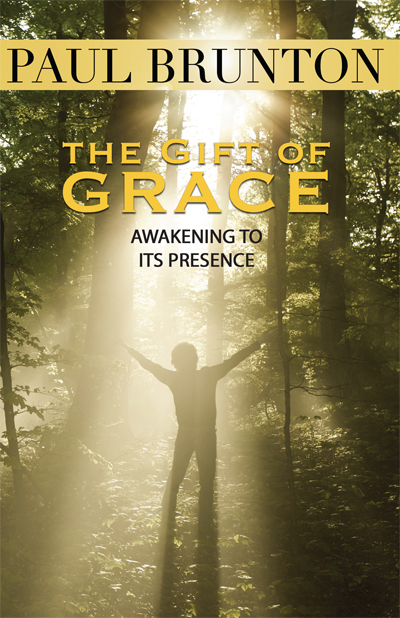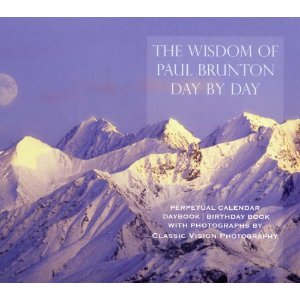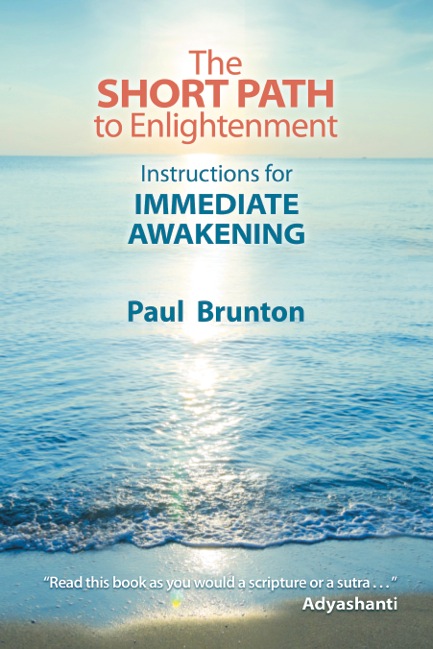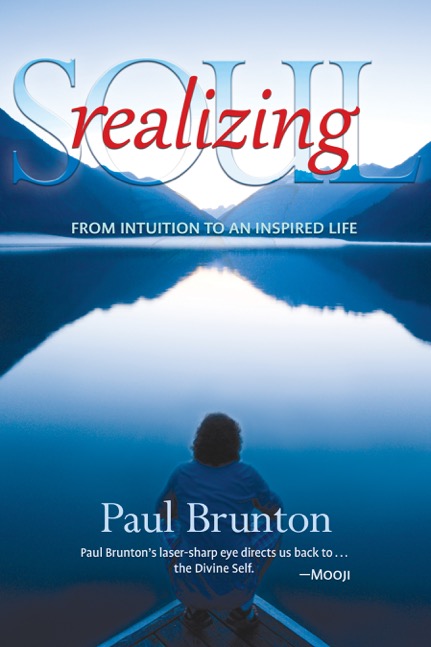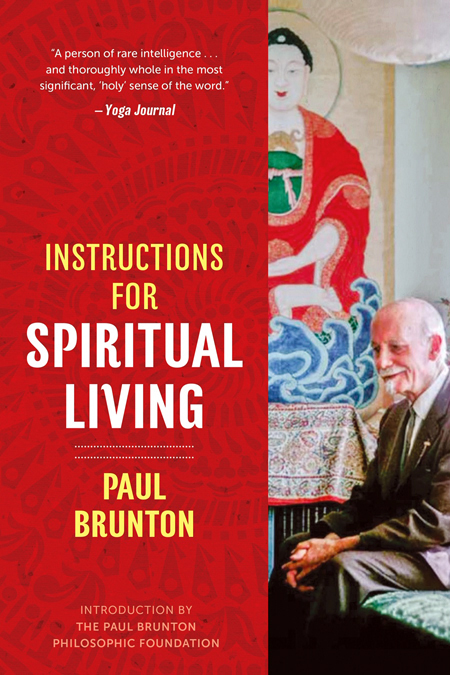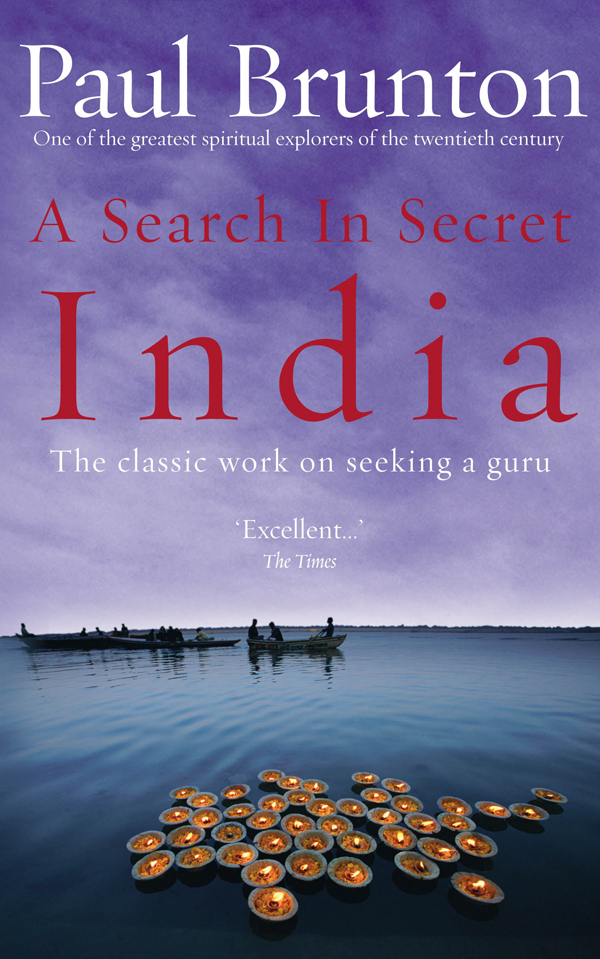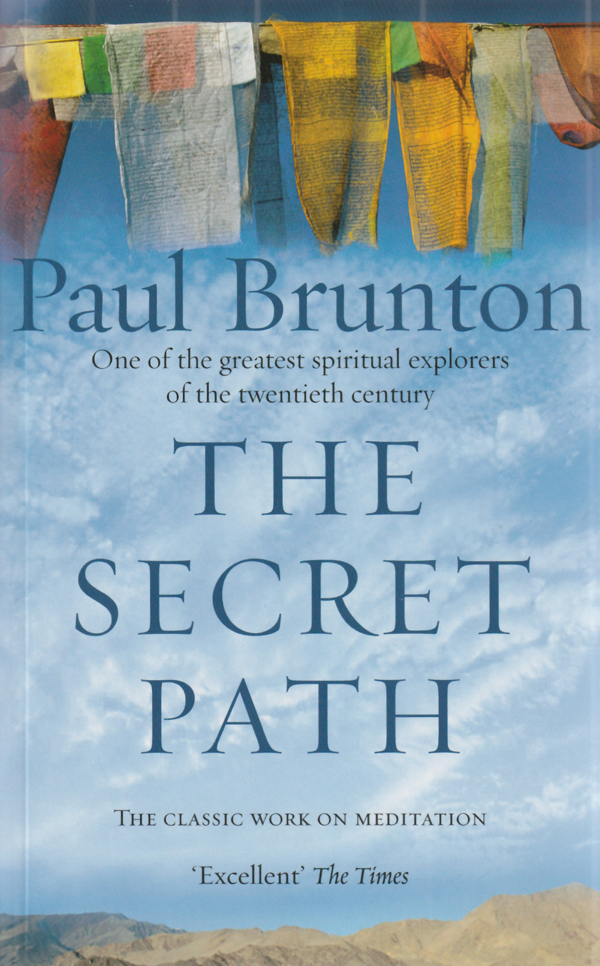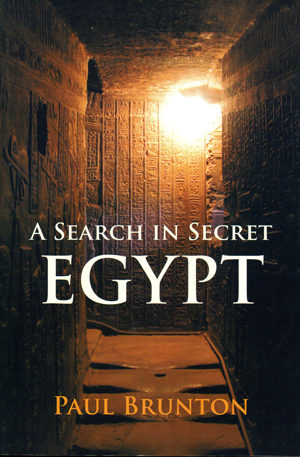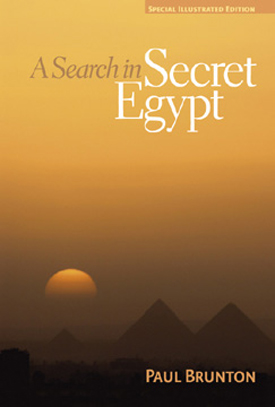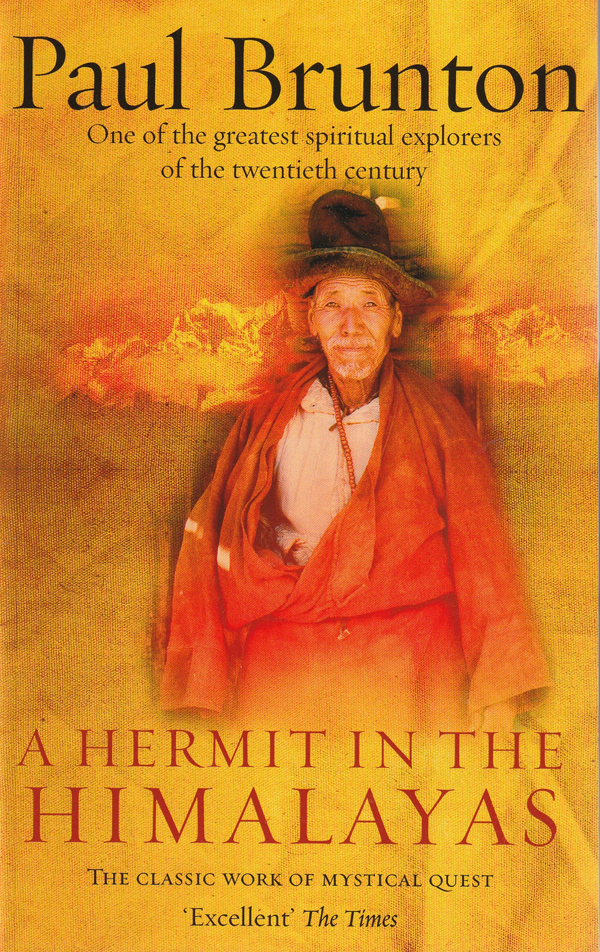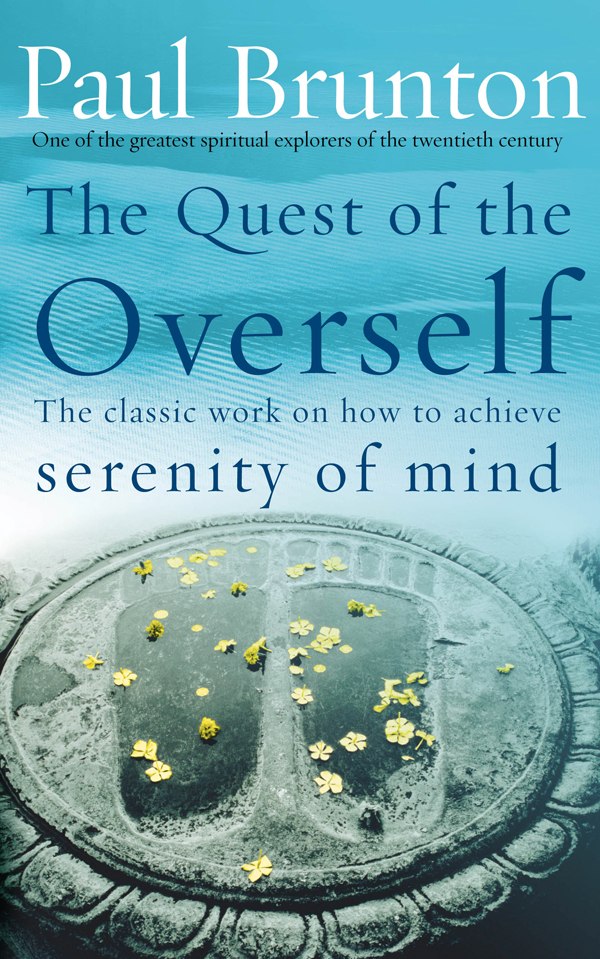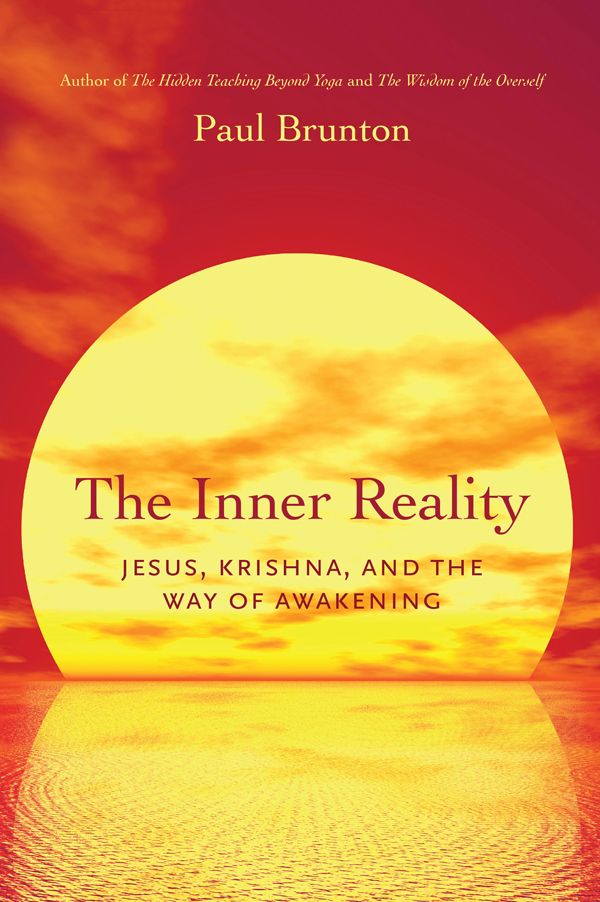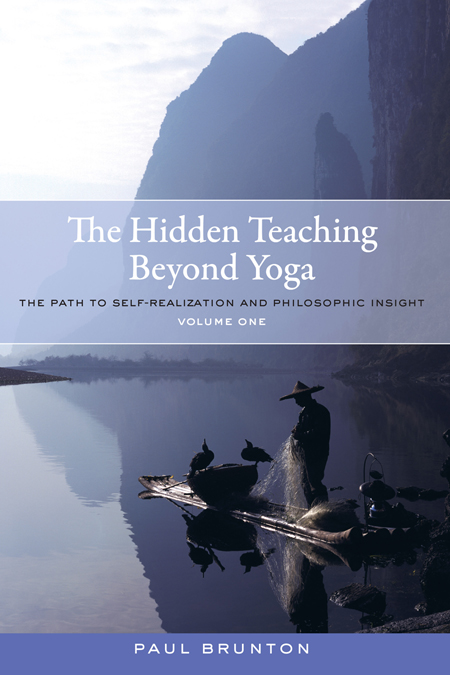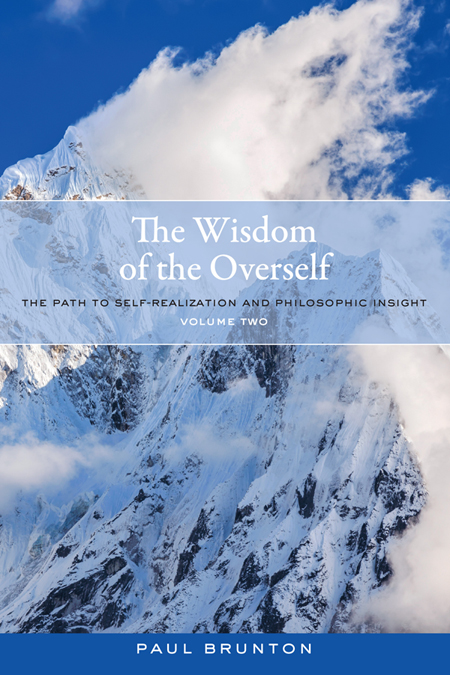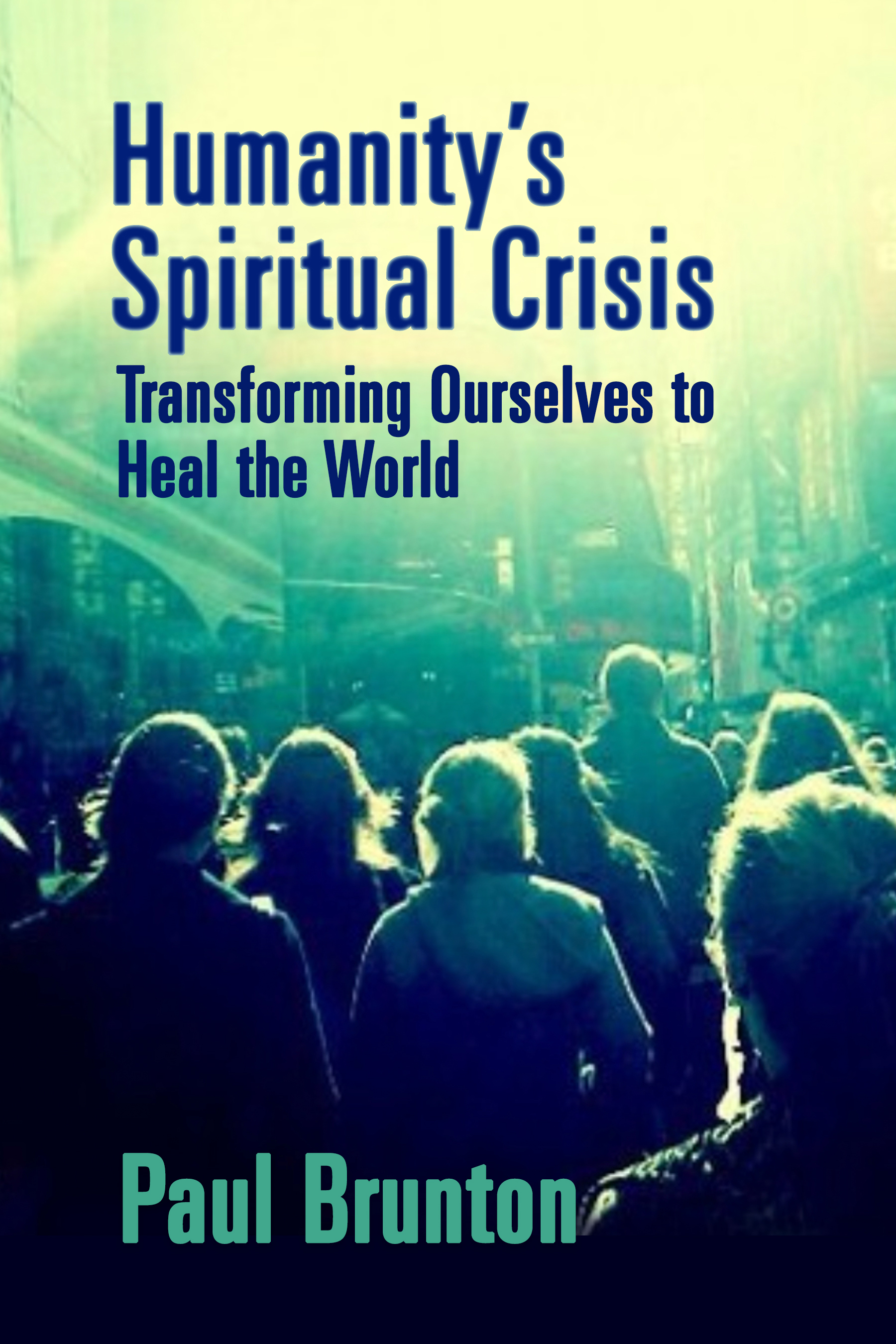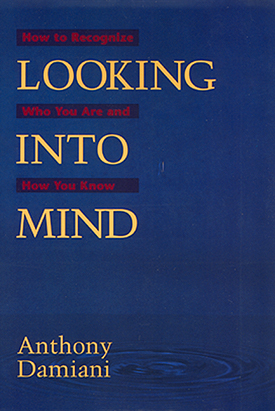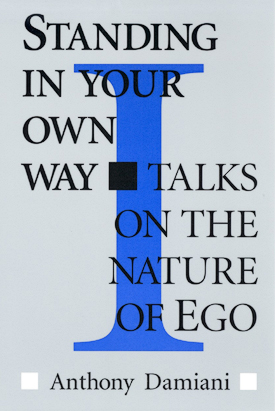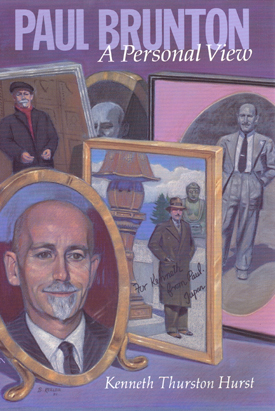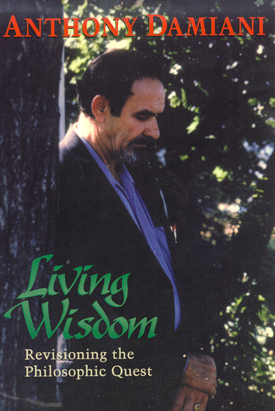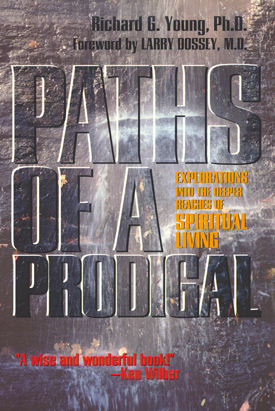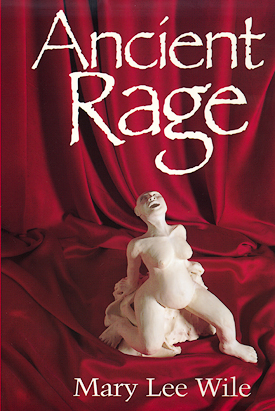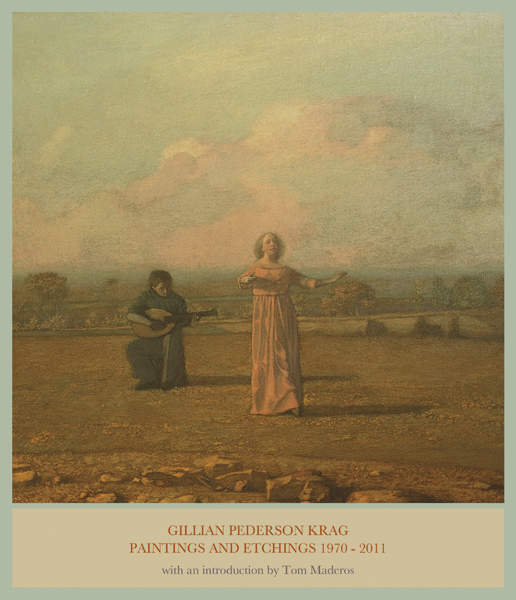The Notebooks of Paul Brunton volume 8
Reflections on My Life and Writings By Paul Brunton
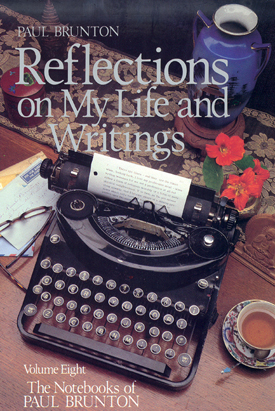
Retail/cover price: $14.95
Our price : $11.96
(You save $2.99!)
About this book:
The Notebooks of Paul Brunton volume 8
Reflections on My Life and Writings
by Paul Brunton
Paul Brunton's reflections on more than fifty years of research, spiritual practice, and writing—and some of the people, influences, and events he considered significant in his life.
Subjects: Spirituality, Autobiography
5.75 x 8.5, softcover
(hardcover is available)
272 pages
ISBN 10: 0-943914-29-9
ISBN 13: 978-0-943914-29-9
Book Details
This volume is a mosaic of autobiographical excerpts from Paul Brunton's notebooks. It brings together reflections on 50 years of the author's research, practice, travel, and writing--and some of the people, influences, and events he considered significant in his life.
INTRODUCTION
1. TWO ESSAYS
2. PHILOSOPHY AND CONTEMPORARY CULTURE
Grand truths and common speech
The need for spiritual education
Creative independence
The challenge of synthesis
3. ENCOUNTER WITH DESTINY
A mysterious presence
Inside mystical experience
The making of a messenger
The message and the marketplace
4. REFLECTIONS ON TRUTH
Sharing truth
Seeking the impersonal
The challenge of formulation
Obstacles to inspiration
The limits of yoga
Living with truth
5. THE LITERARY WORK
The kindred souls
A mixed reception
Responding to critics
Corrections, revisions, development
A warning shared
Book notes
Seed thoughts
A sacred vocation
The contribution of silence
The value of solitude
6. THE PROFANE AND THE PROFOUND
A sense of proportion
An unorthodox yogi
People and places
Happenings on the way
“. . . a veritable treasure-trove of philosophic-spiritual wisdom.” —Elisabeth Kubler-Ross
“. . . sensible and compelling. His work can stand beside that of such East-West bridges as Merton, Huxley, Suzuki, Watts, and Radhakrishnan. It should appeal to anyone concerned personally and academically with issues of spirituality.” —Choice
“Vigorous, clear-minded and independent . . . a synthesis of Eastern mysticism and Western rationality. . . A rich volume.” —Library Journal
“. . . a great gift to us Westerners who are seeking the spiritual.” —Charles T. Tart
“A person of rare intelligence. . . thoroughly alive, and whole in the most significant, 'holy' sense of the word.” —Yoga Journal
For more reviews of the Notebooks series, click here
Reflections on My Life and Writings is a mosaic of autobiographical excerpts from Paul Brunton's personal notebooks. The twelfth category in The Notebooks of Paul Brunton, it brings together a variety of the author's most personal thoughts and observations.
Though his readership numbers in the millions, Paul Brunton (1898–1981) was an intensely private and naturally unassuming man. He continually sought for effective ways to bring his ideas to the public mind and keep his own personality at a low profile. When pressed to describe himself, he usually said that he was a researcher—which he defined as "one who creates new knowledge."
Maturing with a century that brought more changes than the previous thousand years, he witnessed the advent of the automobile, the airplane, radio, television, and nuclear power, and devoted his life to a path of spiritual discovery suitable for this epoch of turmoil and transition. This role took him on many journeys into the soul, across the centuries, and around the world in an extraordinary quest for Truth. In the course of these journeys, he occasionally paused to record his private impressions of himself, his works, and people or places he encountered.
The inner and outer aspects of this quietly paradoxical individual were remarkably different from one another. Inwardly, Paul Brunton was a tirelessly exacting scholar and researcher of philosophical and religious ideas and practices. Outwardly, he dedicated himself to sharing his hard-earned understanding in the simplest, most inspiring and nontechnical form he could develop. In him, the poet's reverence for beauty and the scientist's reverence for truth demanded the creation of a mutually satisfying common language. The process gave birth to a voice that bridges an earlier and a future time.
The outer man traveled widely to drink deeply of a world-dispersed wisdom the twentieth century had largely chosen to ignore. The inner man, in love with the beauty of what a human being can become, envisioned a scientifically literate human community that would eventually rediscover and creatively reintegrate the values of its own spiritual heritage. As the scholar-researcher matured and the poet-mystic deepened, a thoroughly modern philosopher emerged. Long before other writers now well-known arose in the 1950s to focus attention on specific Eastern teachings, Paul Brunton's "exotic" books had awakened hundreds of thousands of the curious, the confused, and the sincere to the rich treasures of the Oriental mind. He is undeniably one of the individuals to whom the current popularity of the East-West cultural and philosophical movement is most indebted.
Although philosophically at ease with the necessary presence of the ego, P.B. was uninterested in its gaudy manifestations and preferred to direct his uncannily perceptive intelligence to the variety of topics that comprised his definition of philosophy. It is quite possible, therefore, that he would disapprove of this volume; at the very least he would dislike its focus on his personality and his personal opinions of himself and others.
And yet these pages reveal much of him: his humor, his anguish over the world situation, his admiration for great individuals, his disenchantment with the egotism so often found under the robes of the "holy ones," and his assessment of the value and imperfections of his own work. They provide at least partial answers to questions such as: What transformed a London-born journalist into such a successful interpreter and popularizer of Oriental wisdom and mystical techniques? Why did he deliberately undo much of his own worldly success and seek relative anonymity for the last thirty years of his life? How did he avoid the fate of so many of his contemporaries—that of becoming a guru surrounded by one circle of adulating disciples and another circle of vehement critics? What was the destiny that linked his cycles of inner and outer growth with the development of the East-West cultural movement itself? What is the relevance for us of life's unusual experiment with him?
Chapter one consists of two essays that summarize P.B.'s literary and mystical development up to the time they were written, in the early to middle 1950s. Chapter two considers the problem of bringing vitally needed education to bear upon the weakened spiritual condition of modern culture, and the need for a fresh approach to philosophy in response to the crisis. In the third chapter, P.B. reflects on the awakening of his own consciousness to the presence of the Overself, and the responsibilities that awareness required of him. The fourth chapter reviews lessons and achievements in the path of all seekers of spiritual truth; it describes some of P.B.'s own struggles to externalize the inner wisdom he had acquired. In the fifth chapter, P.B. reviews his literary life. He examines his books, his audience of critics and admirers, his own method and writing style, and looks beyond the written work to the less apparent but more powerful communication through silence. Finally, in the last chapter, P.B. takes a look at himself and at a few of the many places and people he encountered in his busy life, along with thoughts on a few other topics.
There is, however, a serious problem of chronology: very few of the notes in the notebooks bear dates indicating when they were written. The vast majority of them are impossible to date accurately. It is clear that the two essays forming the first chapter were written while the author was in his mid-fifties. Many of the paras also seem to have been written after the publication of The Spiritual Crisis of Man (1952) and before 1963, the year that brought a profound deepening that visibly affected all his subsequent work and writing. We hope, therefore, that the two essays will serve as a sort of landmark by which readers may be able to estimate whether a given statement is from an earlier or later period of his life.
What is most clear is that very little of the personal material available in The Notebooks dates from the later years. It seems that his disinclination to speak about himself eventually had its way.
One biography of Paul Brunton has been published and two are currently being written. The former, Paul Brunton: A Personal View, offers sixty years of richly varied memories from the perspective of his son Kenneth Thurston Hurst. It is available from Larson Publications.
Editorial conventions here are the same as stated in the introductions to Perspectives and The Quest. Likewise, (P) at the end of a para indicates that it also appears in Perspectives, the introductory volume to this series.
From chapter 2: Philosophy and Contemporary Culture
Grand truths and common speech
1
Born in the previous century, I may have less right to offer suggestions to those who are only one-third or one-quarter my age. For they live not only in a vastly changed world but also with less respect for authority, age, and the past. Perhaps there are only two reasons why I feel this venture should be made. The first is that, before and after the threshold of adulthood, I too was a protester and a rebel, with faith and illusions lost, with questions and doubts galore. The second reason is that, consequently, I became a seeker after truth and ranged far and wide in its quest, with results that seem to me to have a little meaning even for these times.
2
My writings are primarily for those who are uninterested in the arid verbal technicalities and remote learned subtleties which abound in the dull texts of professional philosophers. The spinning of such cobwebs profits nobody except academic bookworms. Until recently it was the fashion in academic university circles openly to ignore or covertly to sneer at the work of Russell, Joad, and other "popularizers" of philosophy. They were regarded as being superficial. Yet they are the very men who have succeeded in winning some respect for the subject, because they have succeeded in freeing it from cloudiness and making it clearly intelligible.
3
It seems to have been a chief part of my work to give some people their first inkling of the existence of these ideas and practices, and to orient other people towards an interest in India - its religious, mystical, or philosophic culture.
4
I have here given an account of a way of expressing spirituality in life which is fit for our time; however ancient be this way, I have described it differently because I speak a language and have to encounter environments which the ancients never spoke or encountered.
5
To make the most obscure truths easily intelligible, to translate the world-symbol into plain communication, is a noble work.
6
I tried to "demystify" — if the term may be invented — the hotch-potch, the disguises and the subtleties, the difficulties, the condensations and the circumlocutions which fill this literature, and to render it readable.
7
In these open times, when most information, many opinions, and much knowledge sooner or later finds its way into print, lecture, and discussion, there is no need to torment oneself with study of writings, antique or medieval, which deliberately clothe ideas in fantastic forms, in baffling symbolism, or hide meaning under layers of meaninglessness.
8
To put the once-abstruse truths of mentalism into works readable, understandable, and nontechnical — just as had been done with yoga — was a further effort I made with enthusiasm but now, so many years later, its importance seems even greater than it did then.
9
There are those who, stupefied by convention, do not comprehend that the question of the truth of these ideas is not to be settled by the fact that they are set down in an informal vivid way rather than in a prim academic one. They are set down in this way because the custodians of philosophy feel the democratic time-spirit and want to make them more accessible to the masses than they have been in the past. But this could not be done without taking mysticism and metaphysics out of their verbal mummy-wrappings.
10
To help restore a vanishing age of foolish imposture when man's evolution imperiously demands its very disappearance is the very reverse of my aim.
11
Dandapani, a guru, once said to me in India: "Although we are writing popular works for the man in the street, nevertheless let them be philosophically correct and metaphysically accurate even from the standpoint of advanced students. Let us not mislead the masses while simplifying our doctrine for them."
12
Blunt speech and plain writing have their place too, along with flowery prose and poetic colour; but in this matter of secret paths and unfamiliar quests and higher states of consciousness, they are even more indispensable than symbolic terms, metaphoric phrases, or enigmatic sentences.
13
In some of my later works I tried to clear up, through the aid of science and plain language, many of the mysteries which have been locked up in the old Upanishads beyond the understanding of modern people like ourselves.
14
The Indians have written the most important philosophic statement of all — "All is Brahman" — which I have transposed, possibly to their frowns, as "All is Mind." But one cannot go on repeating it all the time. There are other statements which need to be made, less important but still much to the point for us who have to live in the twentieth century.
From chapter 3: Encounter with Destiny
A mysterious presence
1
In these pages I have tried to tell how consciousness of God and how knowledge of God's value came to me.
2
As this work went forward, I felt and knew some presence in myself that took a part in its making. If I were to say that these pages were written by me, there would be an uneasy feeling of untruth in me. If I were to say the contrary, there would be a sense of the absurd in such a statement. I leave the reader to make what he can of these paragraphs.
3
Rather than be the scribe of ephemeral fact let me, O Lord, be the scribe of eternal vision. Let me write down word-for-word those divine messages which come to me out of the ether.
4
It is both my fate and my joy to labour to the last as a medium for this voice within me. I shall put down my pen only when I put down my life.
5
It did not occur to an unimaginative mind that I could always conquer a competence with my pen, whether I wrote highly paid publicity material for large commercial companies or lowly paid instructional and inspirational material for struggling spiritual seekers. A narrow mentality could not arrive at the understanding that my fortune lay within my head and underneath my pen-nib, not within the ashram of any individual yogi nor underneath the Indian sky. How could anyone with whom my personal intercourse was necessarily shrunken by my nomadic life to the fewest possible words adjudge either my character or my motives? And what reply but contemptuous silence could I make when such a one started a chorus of calumny about my having sat at the feet of Ramana Maharshi meanly and merely to earn a livelihood? For how could an ignorant man know at the time that I carried a standing invitation to become the editor of a journal in the West at a remuneration many times more than my modest earnings from books?
The truth is that I am not and never have been a journalist; I am not and never have been a professional author. Most of my time and much of my energy are pledged, as sacredly and as sincerely as any human being has ever pledged them, to the quest of the Overself and to the communication of the results of this quest for the helping of other seekers. I always felt that the term of life was too short merely to be devoted to earning a livelihood or collecting luxuries. No! — I wrote about these higher things because something higher than my petty self bade me do so, and when it tells me to desist I shall certainly do so and never write about them again. Meanwhile I regard my work to be no less holy than a priest's. Journalists and authors usually think — and quite rightly — of the fees they receive or the royalties they earn as being so much payment for so many words written or for so many copies sold. I however am constitutionally incapable of thinking like them and therefore I know well that I am neither a journalist nor an author. For I am never really alone when writing but every now and then there rises before my mind's eye the vision of some man or woman whose whole life may take a new and nobler course because of a few paragraphs which flow lightly from this old pen of mine, or of some broken creature whose self-destroying hand may be stayed and stayed forever from a suicidal act because of a fresh understanding got from some sentences which trip out of my typewriter. There can be no reasonable recompense for such services. They cannot be properly priced in any of this planet's currencies, so it would be better not to price them at all. Certainly it seems to me that I have nothing to sell and that so long as I listen for and obey the Voice deep within the heart, so long will the world's rewards or the world's sneers be but of secondary importance. And so long as my critics think that I have come into embodiment for the same petty little purposes as they, so long will they utterly fail to understand me. The abyss between us is too wide and too deep for that. It is indeed the abyss between two short words: the impassable chasm between get and give.
6
My work is a "prophetic" message to our times, a religious revelatory work. An academic seal would put it on an intellectual and consequently lower plane.(P)
7
He could not communicate such discoveries as a matter for doubt or for settlement by discussion. He can communicate them only with a tone of authority and in an atmosphere of surety, for this is how he himself received them.
8
Each oracular sentence carries a message for someone, somewhere. The writer does not need to know who it is.
9
I am but a messenger. I proffer no initiation, and propose to perform no miracles for you. All I can do is to say, with H.P. Blavatsky: I can tell you how to find Those who will show you the secret gateway that leads inward only, and closes fast behind the neophyte for evermore. For those who win onwards, there is reward past all telling: the power to bless and save humanity. For those who fail, there are other lives in which success may come.
In his own words:
“Writing, which is an exercise of the intellect to some, is an act of worship to me. I rise from my desk in the same mood as that in which I leave an hour of prayer in an old cathedral, or of meditation in a little wood . . .” —from Perspectives, volume 1 in The Notebooks of Paul Brunton, p. 143
“P.B. as a private person does not count. There are hundreds of millions of such persons anyway. What is one man and his quest? P.B.’s personal experiences and views are not of any particular importance or special consequence. What happens to the individual man named P.B. is a matter of no account to anyone except himself. But what happens to the hundreds of thousands of spiritual seekers today who are following the same path that he pioneered is a serious matter and calls for prolonged consideration. Surely the hundreds of thousands of Western seekers who stand behind him and whom indeed, in one sense, he represents, do count. P.B. as a symbol of the scattered group of Western truth-seekers who, by following his writings so increasingly and so eagerly, virtually follow him also, does count. He personifies their aspirations, their repulsion from materialism and attraction toward mysticism, their interest in Oriental wisdom and their shepherdless state. As a symbol of this Western movement of thought, he is vastly greater than himself. In his mind and person the historic need for a new grasp of the contemporary spiritual problem found a plain-speaking voice . . .” —from Perspectives, volume 1 in The Notebooks of Paul Brunton, p. 145
Learn more about Paul Brunton through articles at the Paul Brunton Philosophic Foundation web site
Electronic versions of this book are available from all major (Amazon Kindle, Barnes & Noble, Apple, Kobo, etc.) and most smaller ebook vendors. Please don't try to order ebooks directly from us, as we are not yet able to deliver anything to you in a preferred electronic format.
To see all our Paul Brunton titles, scroll down to The Complete Paul Brunton Opus below.
To see and/or order individual volumes in The Notebooks of Paul Brunton, hover your mouse over the specific cover in the Notebooks section of Complete Paul Brunton Opus below, then click on Details in the box that appears within it.
Click here to see or order the complete set of The Notebooks of Paul Brunton.
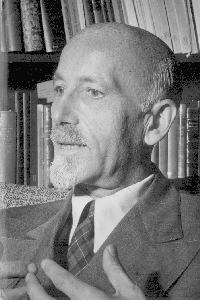
Paul Brunton helps us hear the melody behind the medley of today's "spiritual marketplace." His late writings raise the bar for what we can expect of spiritual teachings and teachers, and what we can do for ourselves. Born in London in 1898, he soon became a leading pioneer of much of what we now take for granted. He traveled widely throughout the world (long before it was fashionable) to meet living masters of various traditions with whom he then lived and studied. His eleven early books from 1934–1952 shared much of what he learned, and helped set the stage for dramatic east-west exchanges of the late 20th century. Paul Brunton left more than 10,000 pages of enormously helpful new work in notebooks he reserved for posthumous publication, much of which is now available as The Notebooks of Paul Brunton. See "The Complete Paul Brunton Opus" in blue below to see his many works available on this site. You can also search on Paul Brunton in the search bar to browse the selections, or click on a link below for specific connections.
Click here for an article about Paul Brunton.
Click here for The Notebooks of Paul Brunton.
To access small theme-based books compiled from Paul Brunton's writings, scroll down to Derived from the Notebooks below.
To access Paul Brunton's early writings, published from 1934–1952, scroll down to Paul Brunton's Early Works below.
To access commentaries on Paul Brunton and his work by his leading student, Anthony Damiani, as well as other writings about Paul Brunton and/or his work, scroll down to Commentaries and Reflections on Paul Brunton and His Work below.
Book Details
This volume is a mosaic of autobiographical excerpts from Paul Brunton's notebooks. It brings together reflections on 50 years of the author's research, practice, travel, and writing--and some of the people, influences, and events he considered significant in his life.
INTRODUCTION
1. TWO ESSAYS
2. PHILOSOPHY AND CONTEMPORARY CULTURE
Grand truths and common speech
The need for spiritual education
Creative independence
The challenge of synthesis
3. ENCOUNTER WITH DESTINY
A mysterious presence
Inside mystical experience
The making of a messenger
The message and the marketplace
4. REFLECTIONS ON TRUTH
Sharing truth
Seeking the impersonal
The challenge of formulation
Obstacles to inspiration
The limits of yoga
Living with truth
5. THE LITERARY WORK
The kindred souls
A mixed reception
Responding to critics
Corrections, revisions, development
A warning shared
Book notes
Seed thoughts
A sacred vocation
The contribution of silence
The value of solitude
6. THE PROFANE AND THE PROFOUND
A sense of proportion
An unorthodox yogi
People and places
Happenings on the way
“. . . a veritable treasure-trove of philosophic-spiritual wisdom.” —Elisabeth Kubler-Ross
“. . . sensible and compelling. His work can stand beside that of such East-West bridges as Merton, Huxley, Suzuki, Watts, and Radhakrishnan. It should appeal to anyone concerned personally and academically with issues of spirituality.” —Choice
“Vigorous, clear-minded and independent . . . a synthesis of Eastern mysticism and Western rationality. . . A rich volume.” —Library Journal
“. . . a great gift to us Westerners who are seeking the spiritual.” —Charles T. Tart
“A person of rare intelligence. . . thoroughly alive, and whole in the most significant, 'holy' sense of the word.” —Yoga Journal
For more reviews of the Notebooks series, click here
Reflections on My Life and Writings is a mosaic of autobiographical excerpts from Paul Brunton's personal notebooks. The twelfth category in The Notebooks of Paul Brunton, it brings together a variety of the author's most personal thoughts and observations.
Though his readership numbers in the millions, Paul Brunton (1898–1981) was an intensely private and naturally unassuming man. He continually sought for effective ways to bring his ideas to the public mind and keep his own personality at a low profile. When pressed to describe himself, he usually said that he was a researcher—which he defined as "one who creates new knowledge."
Maturing with a century that brought more changes than the previous thousand years, he witnessed the advent of the automobile, the airplane, radio, television, and nuclear power, and devoted his life to a path of spiritual discovery suitable for this epoch of turmoil and transition. This role took him on many journeys into the soul, across the centuries, and around the world in an extraordinary quest for Truth. In the course of these journeys, he occasionally paused to record his private impressions of himself, his works, and people or places he encountered.
The inner and outer aspects of this quietly paradoxical individual were remarkably different from one another. Inwardly, Paul Brunton was a tirelessly exacting scholar and researcher of philosophical and religious ideas and practices. Outwardly, he dedicated himself to sharing his hard-earned understanding in the simplest, most inspiring and nontechnical form he could develop. In him, the poet's reverence for beauty and the scientist's reverence for truth demanded the creation of a mutually satisfying common language. The process gave birth to a voice that bridges an earlier and a future time.
The outer man traveled widely to drink deeply of a world-dispersed wisdom the twentieth century had largely chosen to ignore. The inner man, in love with the beauty of what a human being can become, envisioned a scientifically literate human community that would eventually rediscover and creatively reintegrate the values of its own spiritual heritage. As the scholar-researcher matured and the poet-mystic deepened, a thoroughly modern philosopher emerged. Long before other writers now well-known arose in the 1950s to focus attention on specific Eastern teachings, Paul Brunton's "exotic" books had awakened hundreds of thousands of the curious, the confused, and the sincere to the rich treasures of the Oriental mind. He is undeniably one of the individuals to whom the current popularity of the East-West cultural and philosophical movement is most indebted.
Although philosophically at ease with the necessary presence of the ego, P.B. was uninterested in its gaudy manifestations and preferred to direct his uncannily perceptive intelligence to the variety of topics that comprised his definition of philosophy. It is quite possible, therefore, that he would disapprove of this volume; at the very least he would dislike its focus on his personality and his personal opinions of himself and others.
And yet these pages reveal much of him: his humor, his anguish over the world situation, his admiration for great individuals, his disenchantment with the egotism so often found under the robes of the "holy ones," and his assessment of the value and imperfections of his own work. They provide at least partial answers to questions such as: What transformed a London-born journalist into such a successful interpreter and popularizer of Oriental wisdom and mystical techniques? Why did he deliberately undo much of his own worldly success and seek relative anonymity for the last thirty years of his life? How did he avoid the fate of so many of his contemporaries—that of becoming a guru surrounded by one circle of adulating disciples and another circle of vehement critics? What was the destiny that linked his cycles of inner and outer growth with the development of the East-West cultural movement itself? What is the relevance for us of life's unusual experiment with him?
Chapter one consists of two essays that summarize P.B.'s literary and mystical development up to the time they were written, in the early to middle 1950s. Chapter two considers the problem of bringing vitally needed education to bear upon the weakened spiritual condition of modern culture, and the need for a fresh approach to philosophy in response to the crisis. In the third chapter, P.B. reflects on the awakening of his own consciousness to the presence of the Overself, and the responsibilities that awareness required of him. The fourth chapter reviews lessons and achievements in the path of all seekers of spiritual truth; it describes some of P.B.'s own struggles to externalize the inner wisdom he had acquired. In the fifth chapter, P.B. reviews his literary life. He examines his books, his audience of critics and admirers, his own method and writing style, and looks beyond the written work to the less apparent but more powerful communication through silence. Finally, in the last chapter, P.B. takes a look at himself and at a few of the many places and people he encountered in his busy life, along with thoughts on a few other topics.
There is, however, a serious problem of chronology: very few of the notes in the notebooks bear dates indicating when they were written. The vast majority of them are impossible to date accurately. It is clear that the two essays forming the first chapter were written while the author was in his mid-fifties. Many of the paras also seem to have been written after the publication of The Spiritual Crisis of Man (1952) and before 1963, the year that brought a profound deepening that visibly affected all his subsequent work and writing. We hope, therefore, that the two essays will serve as a sort of landmark by which readers may be able to estimate whether a given statement is from an earlier or later period of his life.
What is most clear is that very little of the personal material available in The Notebooks dates from the later years. It seems that his disinclination to speak about himself eventually had its way.
One biography of Paul Brunton has been published and two are currently being written. The former, Paul Brunton: A Personal View, offers sixty years of richly varied memories from the perspective of his son Kenneth Thurston Hurst. It is available from Larson Publications.
Editorial conventions here are the same as stated in the introductions to Perspectives and The Quest. Likewise, (P) at the end of a para indicates that it also appears in Perspectives, the introductory volume to this series.
From chapter 2: Philosophy and Contemporary Culture
Grand truths and common speech
1
Born in the previous century, I may have less right to offer suggestions to those who are only one-third or one-quarter my age. For they live not only in a vastly changed world but also with less respect for authority, age, and the past. Perhaps there are only two reasons why I feel this venture should be made. The first is that, before and after the threshold of adulthood, I too was a protester and a rebel, with faith and illusions lost, with questions and doubts galore. The second reason is that, consequently, I became a seeker after truth and ranged far and wide in its quest, with results that seem to me to have a little meaning even for these times.
2
My writings are primarily for those who are uninterested in the arid verbal technicalities and remote learned subtleties which abound in the dull texts of professional philosophers. The spinning of such cobwebs profits nobody except academic bookworms. Until recently it was the fashion in academic university circles openly to ignore or covertly to sneer at the work of Russell, Joad, and other "popularizers" of philosophy. They were regarded as being superficial. Yet they are the very men who have succeeded in winning some respect for the subject, because they have succeeded in freeing it from cloudiness and making it clearly intelligible.
3
It seems to have been a chief part of my work to give some people their first inkling of the existence of these ideas and practices, and to orient other people towards an interest in India - its religious, mystical, or philosophic culture.
4
I have here given an account of a way of expressing spirituality in life which is fit for our time; however ancient be this way, I have described it differently because I speak a language and have to encounter environments which the ancients never spoke or encountered.
5
To make the most obscure truths easily intelligible, to translate the world-symbol into plain communication, is a noble work.
6
I tried to "demystify" — if the term may be invented — the hotch-potch, the disguises and the subtleties, the difficulties, the condensations and the circumlocutions which fill this literature, and to render it readable.
7
In these open times, when most information, many opinions, and much knowledge sooner or later finds its way into print, lecture, and discussion, there is no need to torment oneself with study of writings, antique or medieval, which deliberately clothe ideas in fantastic forms, in baffling symbolism, or hide meaning under layers of meaninglessness.
8
To put the once-abstruse truths of mentalism into works readable, understandable, and nontechnical — just as had been done with yoga — was a further effort I made with enthusiasm but now, so many years later, its importance seems even greater than it did then.
9
There are those who, stupefied by convention, do not comprehend that the question of the truth of these ideas is not to be settled by the fact that they are set down in an informal vivid way rather than in a prim academic one. They are set down in this way because the custodians of philosophy feel the democratic time-spirit and want to make them more accessible to the masses than they have been in the past. But this could not be done without taking mysticism and metaphysics out of their verbal mummy-wrappings.
10
To help restore a vanishing age of foolish imposture when man's evolution imperiously demands its very disappearance is the very reverse of my aim.
11
Dandapani, a guru, once said to me in India: "Although we are writing popular works for the man in the street, nevertheless let them be philosophically correct and metaphysically accurate even from the standpoint of advanced students. Let us not mislead the masses while simplifying our doctrine for them."
12
Blunt speech and plain writing have their place too, along with flowery prose and poetic colour; but in this matter of secret paths and unfamiliar quests and higher states of consciousness, they are even more indispensable than symbolic terms, metaphoric phrases, or enigmatic sentences.
13
In some of my later works I tried to clear up, through the aid of science and plain language, many of the mysteries which have been locked up in the old Upanishads beyond the understanding of modern people like ourselves.
14
The Indians have written the most important philosophic statement of all — "All is Brahman" — which I have transposed, possibly to their frowns, as "All is Mind." But one cannot go on repeating it all the time. There are other statements which need to be made, less important but still much to the point for us who have to live in the twentieth century.
From chapter 3: Encounter with Destiny
A mysterious presence
1
In these pages I have tried to tell how consciousness of God and how knowledge of God's value came to me.
2
As this work went forward, I felt and knew some presence in myself that took a part in its making. If I were to say that these pages were written by me, there would be an uneasy feeling of untruth in me. If I were to say the contrary, there would be a sense of the absurd in such a statement. I leave the reader to make what he can of these paragraphs.
3
Rather than be the scribe of ephemeral fact let me, O Lord, be the scribe of eternal vision. Let me write down word-for-word those divine messages which come to me out of the ether.
4
It is both my fate and my joy to labour to the last as a medium for this voice within me. I shall put down my pen only when I put down my life.
5
It did not occur to an unimaginative mind that I could always conquer a competence with my pen, whether I wrote highly paid publicity material for large commercial companies or lowly paid instructional and inspirational material for struggling spiritual seekers. A narrow mentality could not arrive at the understanding that my fortune lay within my head and underneath my pen-nib, not within the ashram of any individual yogi nor underneath the Indian sky. How could anyone with whom my personal intercourse was necessarily shrunken by my nomadic life to the fewest possible words adjudge either my character or my motives? And what reply but contemptuous silence could I make when such a one started a chorus of calumny about my having sat at the feet of Ramana Maharshi meanly and merely to earn a livelihood? For how could an ignorant man know at the time that I carried a standing invitation to become the editor of a journal in the West at a remuneration many times more than my modest earnings from books?
The truth is that I am not and never have been a journalist; I am not and never have been a professional author. Most of my time and much of my energy are pledged, as sacredly and as sincerely as any human being has ever pledged them, to the quest of the Overself and to the communication of the results of this quest for the helping of other seekers. I always felt that the term of life was too short merely to be devoted to earning a livelihood or collecting luxuries. No! — I wrote about these higher things because something higher than my petty self bade me do so, and when it tells me to desist I shall certainly do so and never write about them again. Meanwhile I regard my work to be no less holy than a priest's. Journalists and authors usually think — and quite rightly — of the fees they receive or the royalties they earn as being so much payment for so many words written or for so many copies sold. I however am constitutionally incapable of thinking like them and therefore I know well that I am neither a journalist nor an author. For I am never really alone when writing but every now and then there rises before my mind's eye the vision of some man or woman whose whole life may take a new and nobler course because of a few paragraphs which flow lightly from this old pen of mine, or of some broken creature whose self-destroying hand may be stayed and stayed forever from a suicidal act because of a fresh understanding got from some sentences which trip out of my typewriter. There can be no reasonable recompense for such services. They cannot be properly priced in any of this planet's currencies, so it would be better not to price them at all. Certainly it seems to me that I have nothing to sell and that so long as I listen for and obey the Voice deep within the heart, so long will the world's rewards or the world's sneers be but of secondary importance. And so long as my critics think that I have come into embodiment for the same petty little purposes as they, so long will they utterly fail to understand me. The abyss between us is too wide and too deep for that. It is indeed the abyss between two short words: the impassable chasm between get and give.
6
My work is a "prophetic" message to our times, a religious revelatory work. An academic seal would put it on an intellectual and consequently lower plane.(P)
7
He could not communicate such discoveries as a matter for doubt or for settlement by discussion. He can communicate them only with a tone of authority and in an atmosphere of surety, for this is how he himself received them.
8
Each oracular sentence carries a message for someone, somewhere. The writer does not need to know who it is.
9
I am but a messenger. I proffer no initiation, and propose to perform no miracles for you. All I can do is to say, with H.P. Blavatsky: I can tell you how to find Those who will show you the secret gateway that leads inward only, and closes fast behind the neophyte for evermore. For those who win onwards, there is reward past all telling: the power to bless and save humanity. For those who fail, there are other lives in which success may come.
In his own words:
“Writing, which is an exercise of the intellect to some, is an act of worship to me. I rise from my desk in the same mood as that in which I leave an hour of prayer in an old cathedral, or of meditation in a little wood . . .” —from Perspectives, volume 1 in The Notebooks of Paul Brunton, p. 143
“P.B. as a private person does not count. There are hundreds of millions of such persons anyway. What is one man and his quest? P.B.’s personal experiences and views are not of any particular importance or special consequence. What happens to the individual man named P.B. is a matter of no account to anyone except himself. But what happens to the hundreds of thousands of spiritual seekers today who are following the same path that he pioneered is a serious matter and calls for prolonged consideration. Surely the hundreds of thousands of Western seekers who stand behind him and whom indeed, in one sense, he represents, do count. P.B. as a symbol of the scattered group of Western truth-seekers who, by following his writings so increasingly and so eagerly, virtually follow him also, does count. He personifies their aspirations, their repulsion from materialism and attraction toward mysticism, their interest in Oriental wisdom and their shepherdless state. As a symbol of this Western movement of thought, he is vastly greater than himself. In his mind and person the historic need for a new grasp of the contemporary spiritual problem found a plain-speaking voice . . .” —from Perspectives, volume 1 in The Notebooks of Paul Brunton, p. 145
Learn more about Paul Brunton through articles at the Paul Brunton Philosophic Foundation web site
Electronic versions of this book are available from all major (Amazon Kindle, Barnes & Noble, Apple, Kobo, etc.) and most smaller ebook vendors. Please don't try to order ebooks directly from us, as we are not yet able to deliver anything to you in a preferred electronic format.
To see all our Paul Brunton titles, scroll down to The Complete Paul Brunton Opus below.
To see and/or order individual volumes in The Notebooks of Paul Brunton, hover your mouse over the specific cover in the Notebooks section of Complete Paul Brunton Opus below, then click on Details in the box that appears within it.
Click here to see or order the complete set of The Notebooks of Paul Brunton.
About Paul Brunton

Paul Brunton helps us hear the melody behind the medley of today's "spiritual marketplace." His late writings raise the bar for what we can expect of spiritual teachings and teachers, and what we can do for ourselves. Born in London in 1898, he soon became a leading pioneer of much of what we now take for granted. He traveled widely throughout the world (long before it was fashionable) to meet living masters of various traditions with whom he then lived and studied. His eleven early books from 1934–1952 shared much of what he learned, and helped set the stage for dramatic east-west exchanges of the late 20th century. Paul Brunton left more than 10,000 pages of enormously helpful new work in notebooks he reserved for posthumous publication, much of which is now available as The Notebooks of Paul Brunton. See "The Complete Paul Brunton Opus" in blue below to see his many works available on this site. You can also search on Paul Brunton in the search bar to browse the selections, or click on a link below for specific connections.
Click here for an article about Paul Brunton.
Click here for The Notebooks of Paul Brunton.
To access small theme-based books compiled from Paul Brunton's writings, scroll down to Derived from the Notebooks below.
To access Paul Brunton's early writings, published from 1934–1952, scroll down to Paul Brunton's Early Works below.
To access commentaries on Paul Brunton and his work by his leading student, Anthony Damiani, as well as other writings about Paul Brunton and/or his work, scroll down to Commentaries and Reflections on Paul Brunton and His Work below.
The Complete Paul Brunton Opus:
Paul Brunton's most mature work, in the order he specified for posthumous publication.
Smaller books on popular/timely themes, developed from the Notebooks and published posthumously.
Paul Brunton's works published during his lifetime from 1934-1952
Commentaries/Reflections by other authors on Paul Brunton or his works.

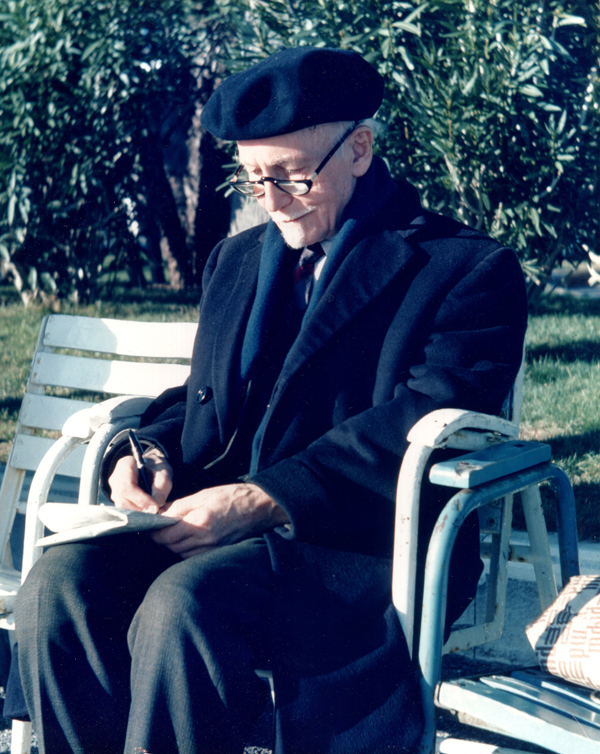
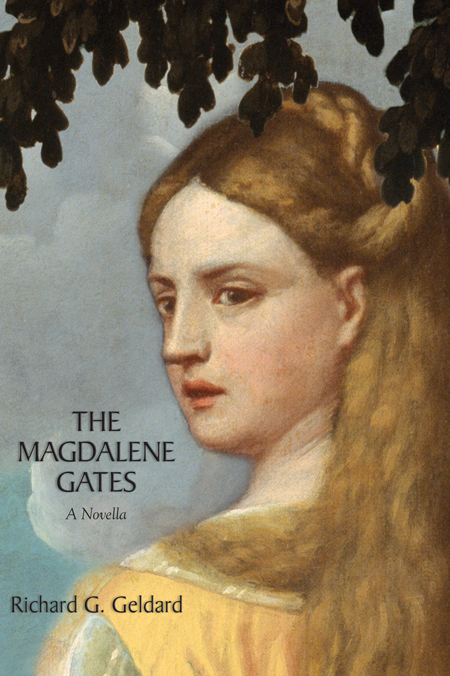
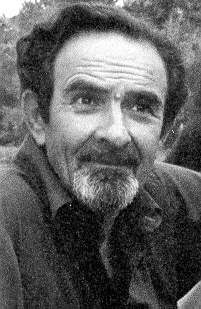


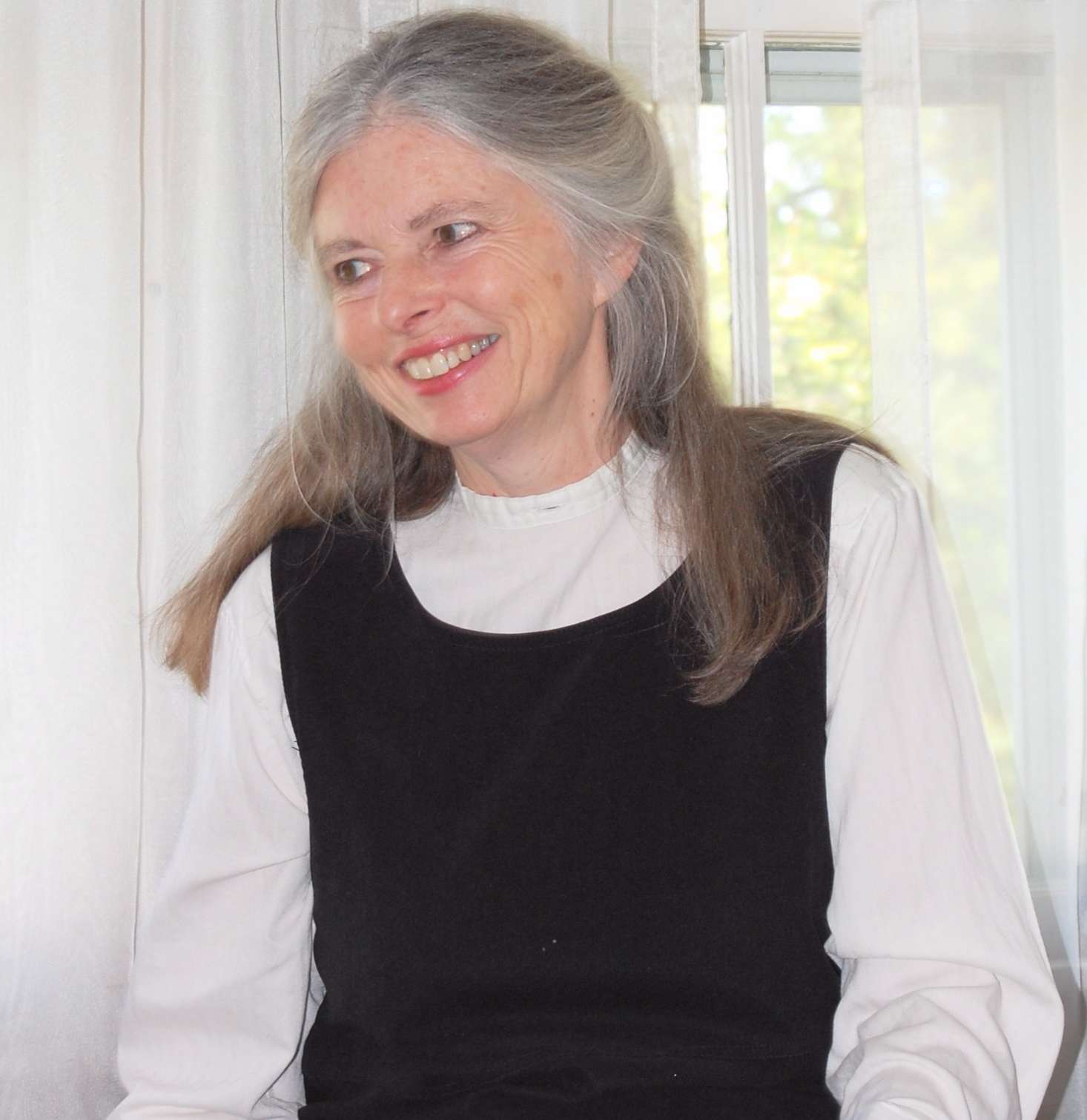
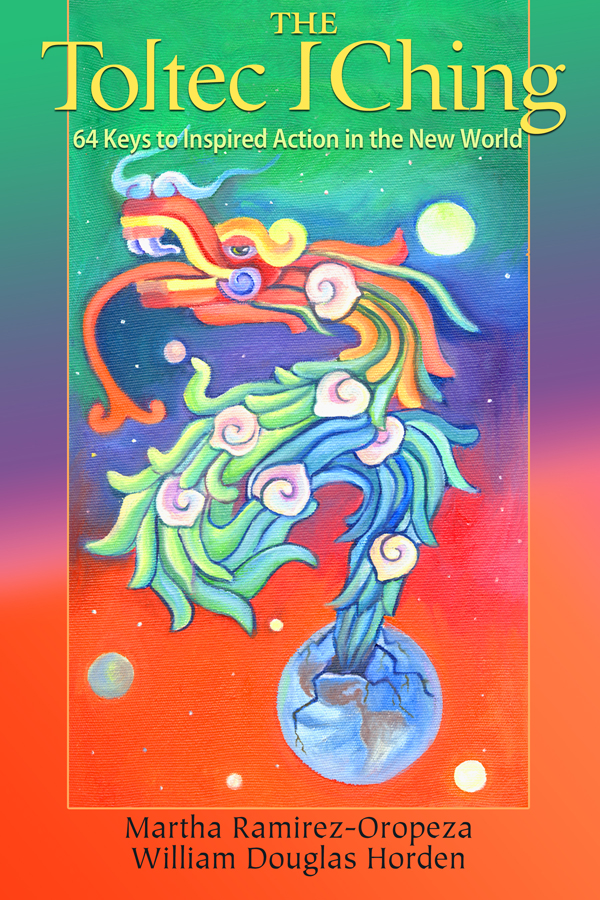
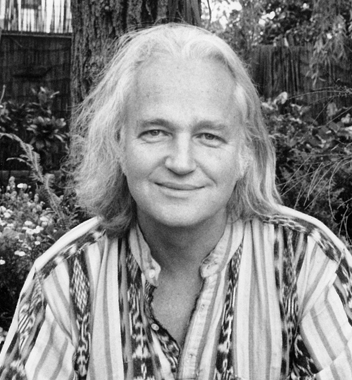
.jpg)
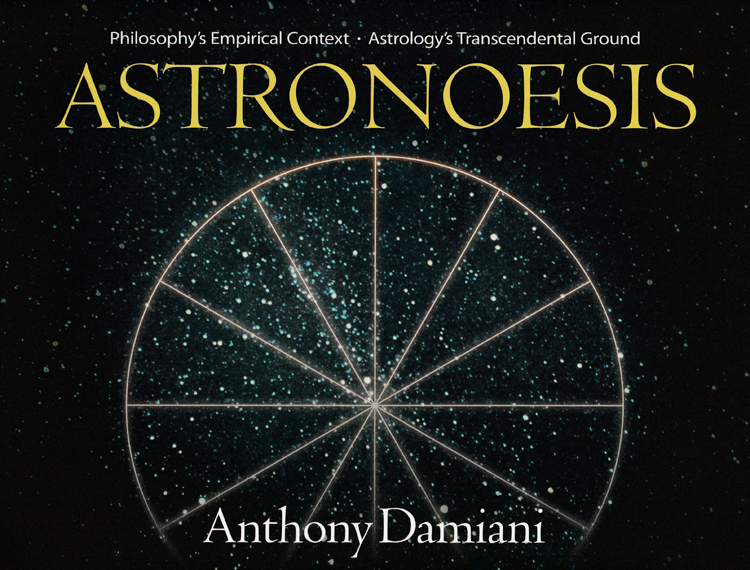
.jpg)
.jpg)
.jpg)
.jpg)
.jpg)
.jpg)
.jpg)
.jpg)
.jpg)
.jpg)
